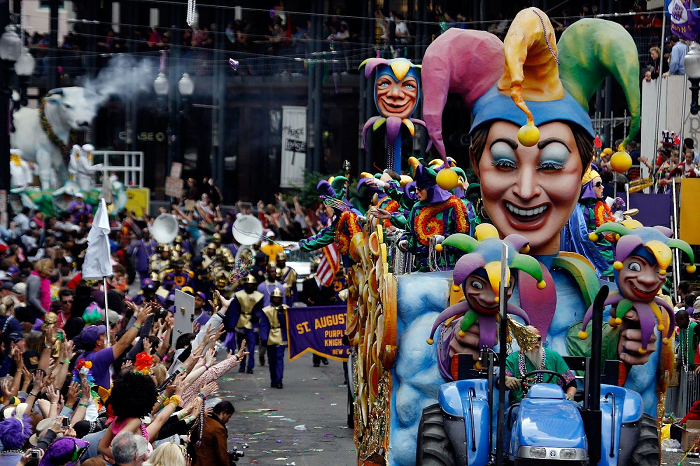It refers to the events of the celebration of carnival, beginning during or after the Christian holidays of the Epiphany (the Day of the Three Kings) and culminating the day before the Ashes.
Wednesday, known as Shrovetide Tuesday. Mardi Gras in French means “fat Tuesday”, reflecting the practice of the last night of eating fatty foods before the ritual Lenten sacrifices and fasting during the Lenten season. Related folk customs are associated with the celebration of Maslenitsa before Lent and religious duties associated with the penitential season of Great Lent. In countries such as the United Kingdom, Mardi Gras is more commonly known as Carnival Day or (traditionally) Shrovetide Tuesday (comes from the word shrive, which means “to perform the sacrament of confession; to absolve sins”).
The festival season varies from city to city, as some traditions, for example, in New Orleans, Louisiana, believe that Mardi Gras stretches for the entire period from Twelfth Night (the last night of Christmas, from which Epiphany begins) until Ash Wednesday. Others refer to the last three-day period before Ash Wednesday as Mardi Gras. In Mobile, Alabama, social events related to Mardi Gras begin in November, followed by Mystical Society balls on Thanksgiving Day, then on New Year’s Eve, followed by parades and balls in January and February, celebrating until midnight before Ash Wednesday. In the old days, parades were held on New Year’s Day. Carnival is an important holiday in Anglican and Catholic European countries.


